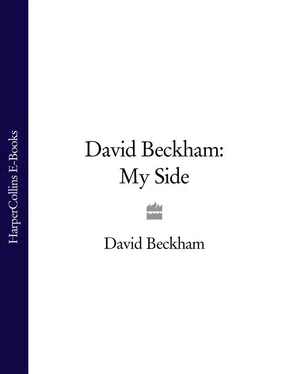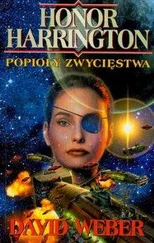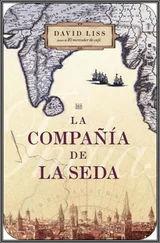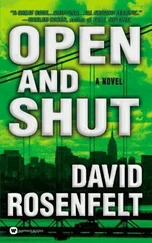Mum wasn’t all that keen on football. Her dad was, though, which was one of the reasons I loved being with him as much as I did. Joe was employed in the print trade. For a long time he was over the road from home, at the Stationery Office in Islington. Then he moved down to Fleet Street. He and my grandmother, Peggy, lived on an estate just off City Road, down near Old Street. My dad went out to work early most Saturdays. The rest of us would get on the train at Walthamstow and go down to see my grandparents for the day. We had to get there before noon: Grandad would be off about 11.30 if he was going to watch Spurs. Before leaving, he’d come downstairs and watch me play football in the little park on the estate. I’m sure Grandad remembers those times: he definitely remembers me breaking his spectacles. I was only about six but I was already kicking a ball hard enough that his glasses didn’t stand a chance the time I accidentally caught him full in the face.
Once Joe went off to White Hart Lane, Peggy would take us off to the shops. Sometimes we’d go to the West End but, more often, we’d get the bus up to the Angel and go to Chapel Market. I didn’t mind at all. I had to follow Mum and Nan and my sisters around for a bit, but I always seemed to wangle a toy or something by the end of the afternoon. We sometimes had pie and mash for lunch in Chapel Street as well. Once we got back to the flat, Joe would be getting in from football. Then he’d get ready to go out and do the night shift. Dad would pick us up in Wenlock Street after finishing work and we’d all drive home together.
Once I started to get serious about playing football, Joe and Peggy would come over to us on Sunday morning. Grandad came and watched all my games. I liked him being there: he was softer with me than Dad when it came to talking about the match and how I’d played. Mum wanted to come too, so Peggy would stay at our house. She’d look after Lynne and have Sunday dinner ready when we all came in. Then, Sunday afternoons, we often went down to Victoria Park in Hackney. There was plenty of open space to play football with Dad and Grandad, and there were lots of other things to do as well: a big playground, the boating lake and even a little zoo.
I couldn’t have asked for anything more and I didn’t, but along came Ridgeway Rovers anyway and took over my life. I was seven, so it’s not surprising I’m not sure now how it all happened. My mum remembers me being spotted playing in the park and a bloke called Stuart Underwood knocking on our front door to ask about me. My dad, though, reckons there was an advert about a new boys’ football team in the local paper and that afternoon over at Chase Lane was a sort of trial. Either way, I’m really grateful – and proud – that I was part of that first Ridgeway Rovers team. And the man who set up the team had a lot to do with me making a future for myself in the game.
Stuart Underwood’s a massive bloke. About six feet four, with a big booming voice and this fantastic presence about him. He was a bit of a sergeant major type. I was scared of him at first. He could be pretty tough: no matter how young you were, if you weren’t playing well, in a game or in training, he’d tell you that you were rubbish and needed to do better, instead of just jollying you along. Stuart was honest with you. But he wasn’t one of those dads who stood on the touchline at kids’ games, bawling and screaming. He had this softness about him as well. His own son Robert played in the team, but Stuart seemed like a father figure to all of us. And he had this dream about creating a really good team.
Every single boy just loved playing for Stuart and we had this fantastic team spirit. He’d organise for Ridgeway to play in competitions in Holland and Germany, so we gained the same sort of experience as a professional footballer playing in the Champions League or an international tournament. Other fathers got involved, too. My dad took on some of the coaching. So did a man called Steve Kirby, whose son Ryan played for Ridgeway and ended up playing against me ten years later in the League. Dad was always a fit man and he did running with us, as well as working on our technique. Steve was a bit of a tactician and he used to do positional play, runs off the ball and that kind of thing. A lot of the time, all three of them would be there and we’d split into smaller groups: there weren’t many boys our age who got that much attention paid to their training. The three of them – Steve, Stuart and my dad – used to argue a lot, but it was all in the cause. They were honest people wanting to make the team as good as they could.
It worked. I don’t know where Stuart found them, but we had some really good players: Ryan Kirby, Micah Hyde, who’s now at Watford, Jason Brissett, who was at Bournemouth last I heard, and Chris Day, who was a lanky centre-forward for us but ended up playing in goal for QPR. It was all about the team, though. Stuart Underwood’s son, Robert, was a perfect example. To be honest, he didn’t have great ability to start with but because he worked so hard at his game, he made himself into a good team player. That was credit to him, but it was credit to Stuart and the rest of us too. We never once thought to ourselves: he’s not good enough to be playing for Ridgeway.
Stuart had to have everything done properly. We always had a decent pitch on which to play our home games, like the one at Ainslie Wood Sports Ground, which was just a short walk from home. We trained twice a week. Stuart lived nearby, in Larkswood Road, and there was a park there, with decent facilities, that we used to use. One way or another, Stuart would make sure we had what we needed. When we had important games, like Cup finals, he’d insist on us eight and nine-year-olds wearing a collar and tie. One important rule was that if you didn’t turn up for training in the week, then you didn’t play at the weekend; it was as simple as that. It was a good habit to learn: I always made sure I was there and that I was there on time. I loved the training anyway. Lived for it. But it was also another reason we had such a good team: Ridgeway Rovers always went about things the right way.
With so many boys’ sides, you notice the most talented players. They make a big fuss of the individuals in the team. That wasn’t allowed with Ridgeway: any showing off and you’d be brought back down. It was all about the team. In no time, we were starting to win games ten and eleven-nil and people could see there was something special about us. Professional clubs started watching our players, and I think West Ham asked about me when I was eleven. But Stuart, Steve and my dad had decided that there should be no need for any of us to be involved with clubs until we were older. If you were training with a professional club, the rule was you couldn’t be training with a Sunday League team at the same time. I knew I didn’t want that, I wasn’t ready for it. We all stuck with Ridgeway. I think, in the long run, those rules were why so many of us went on to make a success of ourselves. We learnt about commitment and dedication right from the start.
I had to learn about not playing football too. Because I was smaller than most, I used to get my share of knocks. Dad had drummed into me that, most of the time, the best thing to do was just get up and get on with it, like I’d had to with his mates over at Wadham Lodge. He taught me a lot about avoiding injury as well. As a winger – and because people were starting to hear about me a bit – I often had a defender trying to give me a kick. Dad worked with me on keeping the ball moving, releasing it quickly once it was under control. That still helps me keep out of scrapes as a professional player. And it’s the best way to play. When I was about ten, I did have one layoff through injury: the kind that happens to lots of boys. Running and jumping all the time, especially on hard pitches, ends up jarring knees, shins and ankles. With me, it was my heels: pins and needles at first and then, later, aching during and after games. I tried putting bits of foam in my boots but eventually I had to have a complete break from football. I couldn’t play, I couldn’t train. Couldn’t even have a kickabout over at the park. That was the longest five weeks of my life and, in a way, I’ve never got over it. Having to watch football instead of playing it still has me climbing up walls.
Читать дальше







![David Jagusson - Devot & Anal [Hardcore BDSM]](/books/485905/david-jagusson-devot-anal-hardcore-bdsm-thumb.webp)




